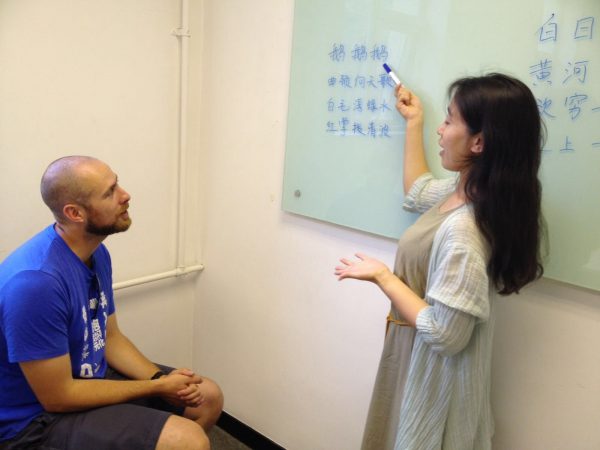
By Tara Dear
Time is rarely a good indicator of how proficient somebody may be in a language, but it’s also the inevitable question when chatting to somebody about their study experience. I rarely tell somebody that I’ve learnt Mandarin for nine months, full stop. Instead, it has to come packaged with an explanation: those nine months have been spaced out over four years, usually in two-month stints at a time, in an immersive environment that allowed me to progress at a pace equivalent to years of university classes.
The next class may come around, but the previous lesson has already faded, and balancing work and personal life becomes a priority. To overcome these challenges, utilizing learning management software systems can provide a structured and convenient platform for continuous language learning, offering flexibility in scheduling and efficient learning resources. By integrating learning into their daily routines and accessing resources at their convenience, learners can maintain a consistent language learning journey and achieve their goals at their own pace.
On the other hand, people who say they’ve lived in China for several years, yet aren’t confident ordering from a menu, tend to hang their heads a bit at the “how long” question. For them, the explanation borders on the defensive: as an English teacher, the working day is full of teaching other people a foreign language, rather than learning one oneself. For others, the good intention to attend class after work once a week was there in the beginning, but after nine hours at a desk, retention rate for squiggly lines and tongue-twister syllables drops quickly. By the time next week’s class rolls around, the previous lesson has already been forgotten, and work-life balance is hard enough to maintain without the extra pressure to serve double-duty as employee and student.
After experiencing working life as an intern at The Hutong, a bilingual, multicultural company based in Beijing, I sympathise much more with the people who never got around to ‘picking up’ conversationally fluent Mandarin, no matter how long they’ve lived here. This method perhaps works for Spanish speakers moving to Italy, or Afrikaaners living in Holland; less so for my British, Canadian, or American colleagues putting down roots in China. When a foreign language’s system is so completely different to one’s own, full-on immersion is as helpful as dropping a duck in a pigpen to learn to oink. Without a basic understanding of tones, characters, grammar and pronunciation, ‘picking up’ conversational Chinese will never get past nihao and xiexie.
That’s not to say that Westerners can’t learn Chinese. I’ve seen some foreigners talk to native Chinese on the phone and be greeted with surprise when they meet in person because they sounded indistinguishable from a local. Given, though, the investment required to master a language like Mandarin, that kind of proficiency can rarely be ‘picked up’ no matter how many decades somebody may live in Beijing. When taken in consideration with the stress and demand of work, it’s hard to avoid the temptation of pointing at a menu and saying ‘zhege’ rather than engaging the waitress in a friendly chat about her day to reinforce the vocabulary crammed in during those once-a-week evening classes.
The quest for conversational fluency is still just as attractive; I don’t mean to imply that we should shy away from the challenge of learning Mandarin. There’s so much to be gained from knowing why the word for ‘exit’ has a character shaped like a box, why it’s important to distinguish between fourth and second tones when approaching somebody with a question, and making the time spent in a traffic jam pass more agreeably with a friendly chat with one’s neighbour. All the same, based on personal experience, my working life in Beijing has been deeply enriched by the good fortune I’ve had to take time out to focus on Mandarin study only, rather than trying to juggle several balls in the air at once. For those for whom that isn’t possible, I hope to see them hold their heads high when they explain that they’ve lived in China for fifteen years and can say xiexie just as fluently with a smile.















